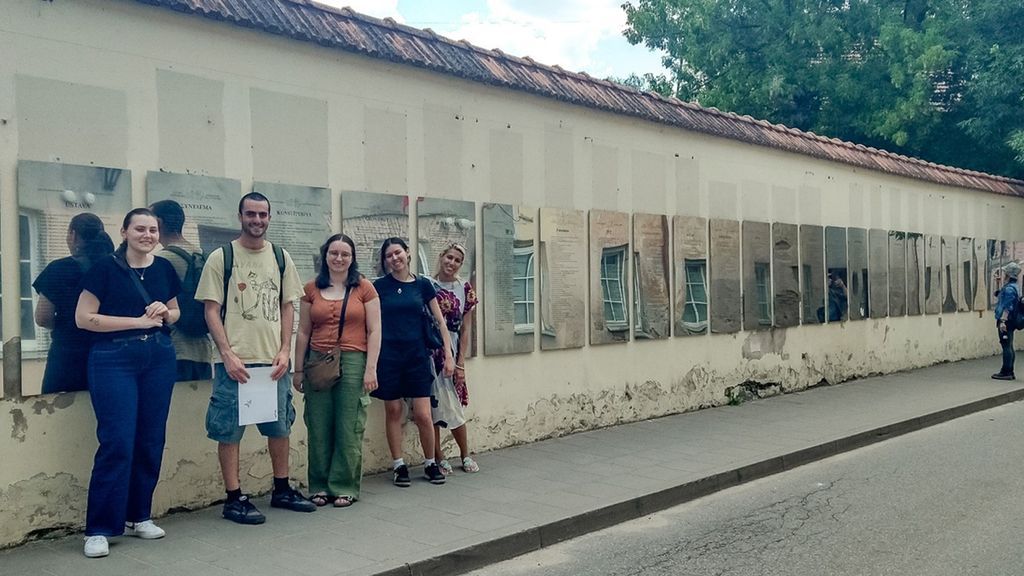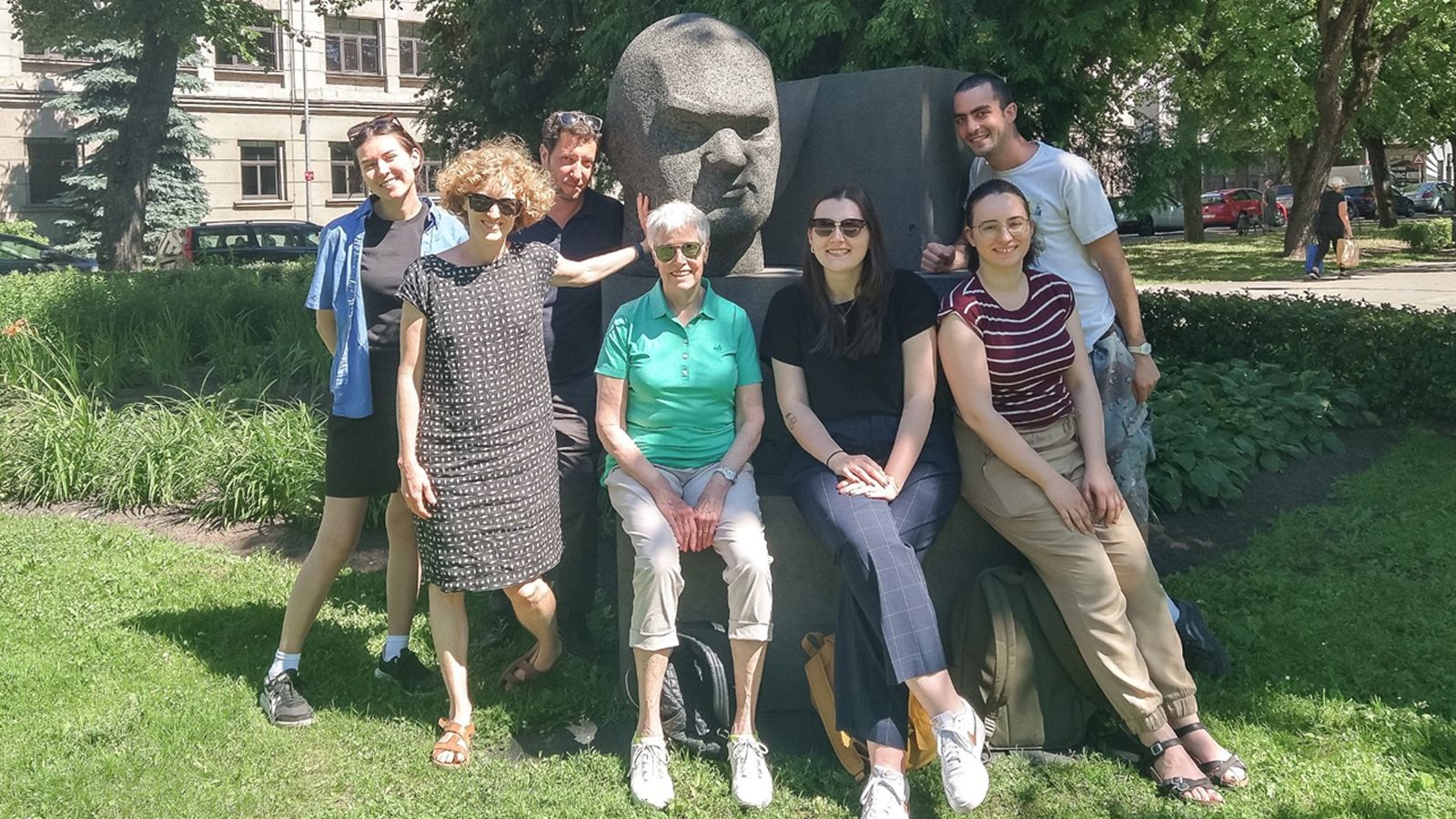Six students spent three and a half weeks in Latvia and Lithuania this summer on a Hunter course about the East Bloc’s tortured history of censorship and contraband literature.
The course, “Tamizdat: Contraband Literature from the USSR and Eastern Europe,” surveyed the publications, circulation, and reception of clandestine manuscripts from behind the Iron Curtain first printed abroad during the Cold War. Based in Riga, the Latvian capital, students explored examples of tamizdat in the 19th and early 20th centuries, after World War II, and nowadays, when censorship has returned in Putin’s Russia and many writers, artists, and journalists must publish abroad or emigrate to avoid legal penalties. Putin’s ongoing war against neighboring Ukraine and its cultural resonance made the trip even more poignant.
“Since 2018, the year of Hunter’s first study abroad program in the Baltics, the world has changed drastically,” said Professor of Russian & Slavic Studies Yasha Klots. “The new historical context, including Russia’s ongoing war against Ukraine, state censorship in Russia itself, and millions of displaced people in Europe made our experience in the Baltics especially meaningful and hard to forget.”
The six students (three Hunter enrollees, two Hunter alums, and a Dartmouth College student) are Alexandra Aguirre ’26, Diana Gor ’22, Gail Landis ’24, Seneca Petry '25, Empress Serna ’21, and Sophie Shields (Dartmouth ’24).
Much of the course devoted itself to wartime literature and culture, with a focus on contemporary Ukrainian authors and artists and antiwar Russian exiles and opposition leaders. The course also featured discussions on present-day Baltic cultures; guest lectures by experts on literary censorship and propaganda, translation, and performance art; and field trips to museums, such as the Latvian and Lithuanian Museums of Occupation, historic sites, antiquarian bookstores, and urban landmarks.

From left, Diana Gor, Seneca Petry, Sophie Shields, Alexandra Aguirre, and Empress Serna in Vilnius.
The program included a three-day trip to the Lithuanian capital, Vilnius, where students took part in a public event with Tomas Venclova, a Lithuanian poet, public intellectual, former Soviet dissident, and Professor Klots’s mentor at Yale. The well-attended event, “Banned Books in the (Cold) War Era,” took place at the Museum of the Venclova Family.
The Hunter group also visited the medieval castle and town of Trakai, Lithuania’s historic capital, and explored the Old Town of Vilnius, including its baroque churches, museums, former Jewish ghetto, and artists’ colony Užupis.
“Thanks to Professor Klots’s network and expertise, students met renowned experts and historians whose lived experiences brought the course material to life,” said Hunter Director of Education Abroad Sarah Craver. “These are exactly the kind of programs that we continue to build, supporting Hunter faculty sharing their knowledge and expertise in situ.”
The program was made possible with the support of Tamizdat Project, a public scholarship initiative for the study of banned books from the former Soviet Union and the Eastern Bloc, and the Russian, East European, and Eurasian Studies Northeast Network, which advances teaching and learning about the area.
“I would like to thank Hunter's Study Abroad Office and Sarah Craver personally, as well as Ian MacMillen from the REEESNe Network, Pavel Chepyzhov from Globus Books (San Francisco), Ainsley Morse, and June Braun-Leibowitz for making it happen!” Professor Klots said.


